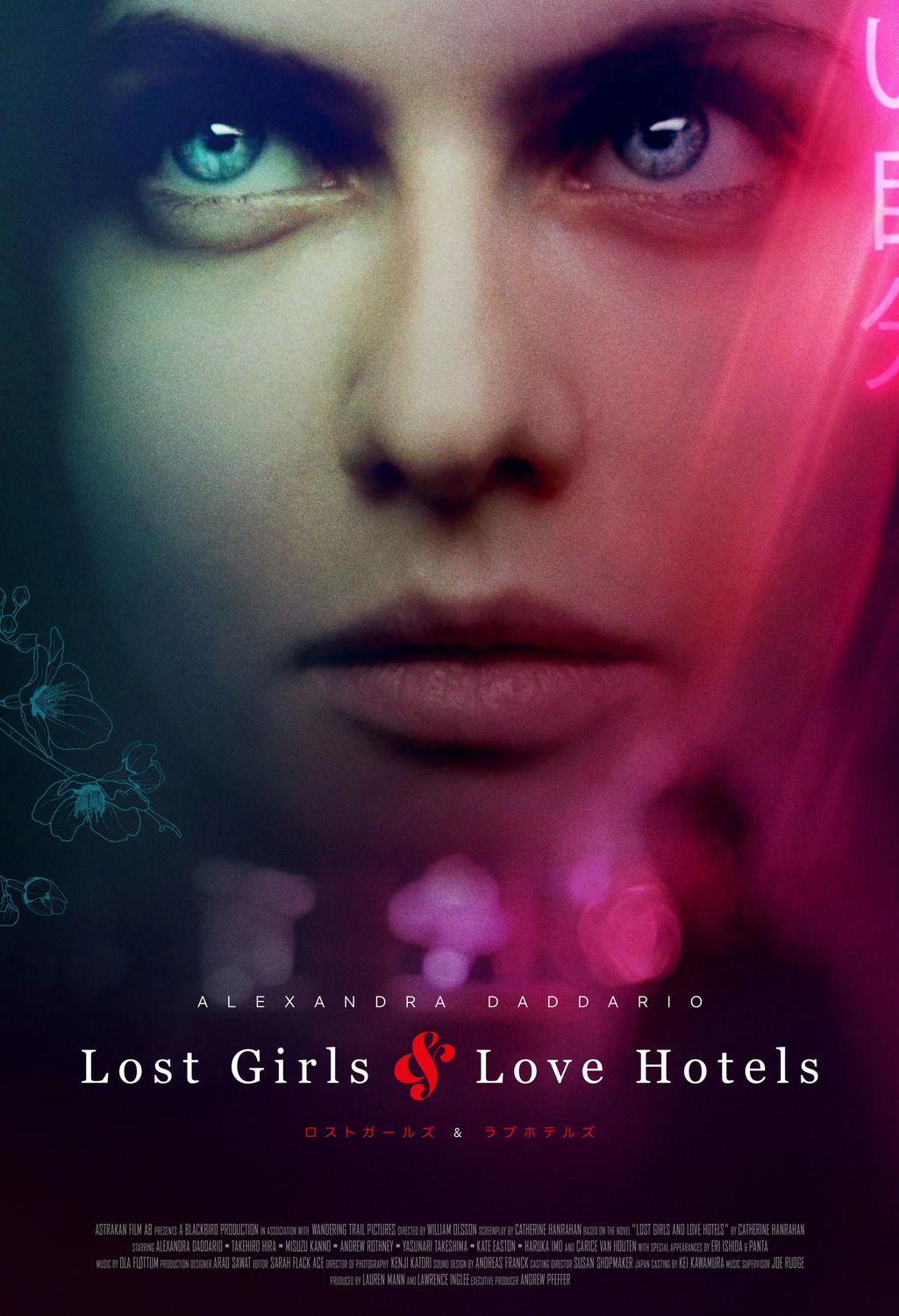While it may be a while before we get another big theatrical release, the digital home video market continues to stay strong, and one of the latest films to hit VOD platforms is William Olsson's Lost Girls and Love Hotels, which is an adaptation of Catherine Hanrahan's acclaimed 2006 novel of the same name.
The film stars Alexandra Daddario (Superman: Man of Tomorrow; We Summon the Darkness), Takehiro Hira (Snake Eyes; Giri/Haji), and Carice van Houten (Game of Thrones; Valkyrie) in the main roles. Daddario plays the lead role of Margaret, who is an expatriate living in Japan working at the Japanese flight academy, teaching flight attendants while simultaneously self-destructing in her personal life due to a tragedy.Â
Ahead of the film's release earlier this month, we sat down with star Takehiro Hira to chat about his pivotal role in the film, working with Alexandra Daddario, his viewpoint on the Yakuza and love hotels, and whether or not he related to the central character after having been through a simliar fish of water experience in his youth.
Check out the full interview below:
ROHAN PATEL:Â Did you read the book or just go off the screenplay more or less?
TAKEHIRO HIRA: I didn’t read the book beforehand, so I just went straight to the script to understand my character.
ROHAN: As Kazu, you’re basically there to help Margaret on her existential journey. So, did you play a similar role in helping Alexandra fully understand Japanese culture?
TAKEHIRO: Actually, my first day on set was almost halfway through shooting because I was in a play when they started filming, so I didn’t get to see them much until my first day, which was in the middle of the shoot. By then, they probably knew more about the sights around Tokyo than I did. I didn’t get to go out much in Tokyo with them but I did spend time with them at a few places like restaurants and stuff. I think they had a fun time.
One thing I do remember, I did introduce Alexandra to a really good acupuncture doctor and she loved it and I think from her Instagram, she’s been doing that since going back home, so maybe that’s something she picked up from Tokyo.
ROHAN: The movie is about how Alexandra’s character is basically a fish out of water in Japan and struggling to find herself. When you first came to study in the U.S. as a teenager, do you remember having similar feelings? Do you relate at all to Alex's character looking back at your own experience?
TAKEHIRO: Oh wow, that’s a great question, - I did go to American school when I was about 15 and I don’t know. Growing up in Tokyo and moving to the U.S., it felt similar in a way because we were very Americanized in Tokyo, so we were more used to American culture. It was probably more of a cultural shock for Alexandra’s character to come to Japan than it was for me to come to America… I never really thought about it to be honest, it’s been a really long time.
The loneliness, feeling out of place, I did feel that. Like for Christmas or Thanksgiving, I had nowhere to go, I’d get invited to dinner parties here and there, but it never felt like home. So, that loneliness Alex felt in the movie as Margaret, I could relate to that for sure.
ROHAN: You’re playing a member of the Yakuza, who American films generally depict as these extremely dangerous villains. What is your viewpoint of the Yakuza having lived in Toyko most of your life?
TAKEHIRO: Yakuza are a popular topic and character in American films, and I mean, we do have Yakuza in Japanese films as well, but not so much. There are still Yakuza in living in our society in Japan, but I’ve never seen one… well, maybe one or two. Everything I know about Yakuza is from watching movies and seeing them in Japanese films.
In reality, they may be businessmen or some other figure in society, and their look and the hair and the clothing is probably different in real life. This film doesn’t really perpetuate the stereotype of the Yakuza, you don’t see my character associate with any other member of the Yakuza, he’s a lone wolf Yakuza, which is rare because the Yakuza are always shown working in groups - I mean, I don’t know for sure, but that’s what we typically see.
ROHAN: I asked Catherine about this as well, but as a native, what was your viewpoint on love hotels?Â
TAKEHIRO: It’s usually run by Yakuza… *laughs* - Not always, but a lot of the time. In Tokyo, well I guess all over Japan, you generally live with your parents, so you don’t live by yourself, you don’t have the apartment to yourself so if you need a private place with your girlfriend or wife or whomever for a few hours, that’s usually how it works. *laughs*
ROHAN: So, what's next for you? Are you looking for more Hollywood projects?
TAKEHIRO: I’ve been auditioning for a few things here and there, but this year, it’s, of course, been really slow. I’m just waiting for something to come up on the horizon I guess.
ROHAN: I think Hollywood still has a ways to go when it comes to introducing Indian superheroes, but it's always a welcome sight to see Asian actors find success, especially in mainstream films like Snake Eyes and Shang-Chi, which is now filming.
After your experience on Snake Eyes, have you ever thought about getting to play in a big Marvel or DC movie?
TAKEHIRO: I’d love to, I mean I’m 45 years old, so I hope I’m not too old to be a superhero, but I would absolutely love to.
https://www.comicbookmovie.com/other/lost-girls-and-love-hotels-exclusive-interview-with-actor-takehiro-hira-about-playing-a-member-of-the-yakuza-a178770" target="_blank">Read More . . .
|
 | Tweet
| Tweet